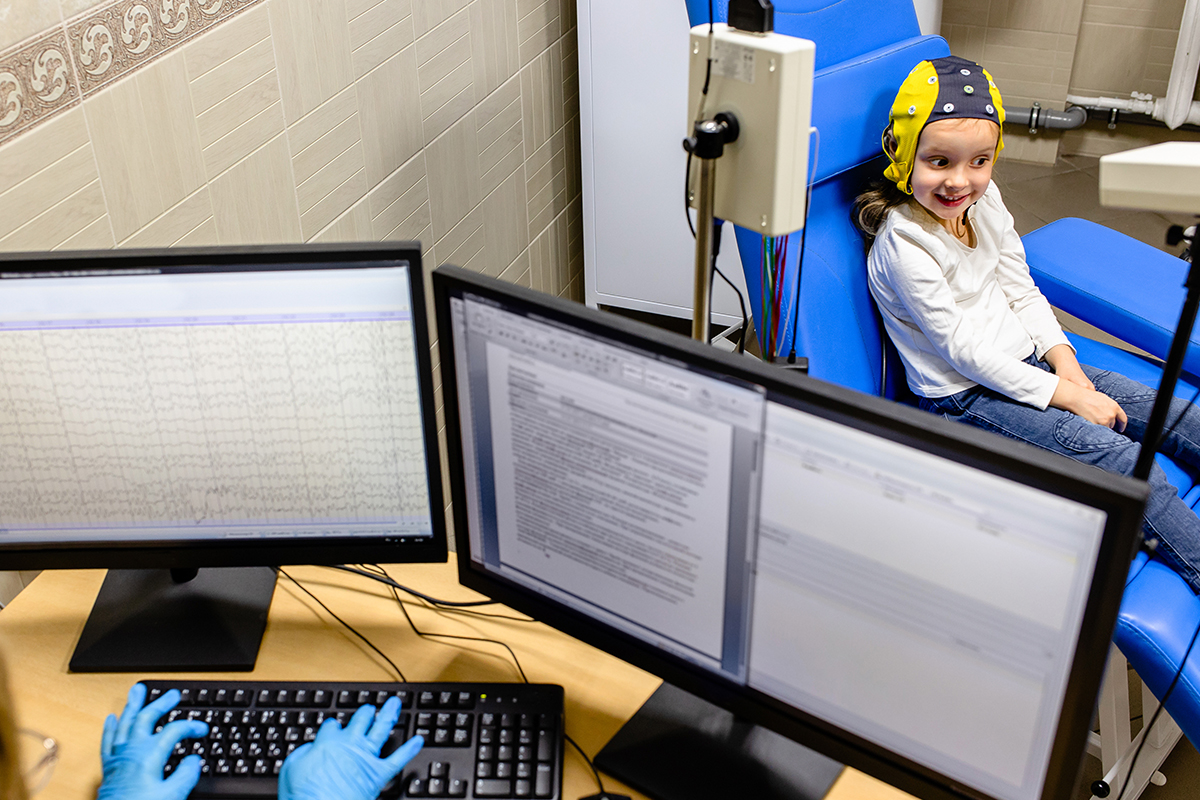
Neurofeedback: Science or Shamanistic Ritual?
Neurofeedback: Science or Shamanistic Ritual?
By Ari Goldstein, Ph.D.
The human brain is a fascinating organ that constantly seeks to improve itself. The capacity of the brain to grow and develop in response to environmental stimuli is magnificent. From trepanation to phrenology, behaviorism to psychoanalysis, man has sought to better understand this splendid organ. As we begin the 21st century, our knowledge of the brain continues to grow and develop at a rapid pace. Technology allows us to understand and improve how the brain functions in manners never before thought to be possible. One of the ways current science allows us to understand how the brain functions is through analysis and normalization of the electrical patterns created by the brain. The process of reading and analyzing the brain’s electrical patterns is known as a Quantitative EEG. The data provided through this process helps individuals and their clinicians understand how their brain is functioning and processing information, thereby allowing for much more targeted clinical interventions.
When I was a psychology student in College, we were taught that the brain does not grow much in adulthood. As the understanding of the brain and neuronal functioning has increased, we now know that the brain is highly capable of adapting and growing even into old age if given the right stimulus. The process of EEG Neurofeedback involves teaching the brain to grow and develop more efficient patterns of functioning. Through a series of games and activities played while connecting their brain to the computer, individuals learn to better self-regulate and improve the efficiency of their brain function.
I was first introduced to EEG Neurofeedback by Dr. Sam Effarah, and my thinking around learning and the brain changed dramatically. I was able to very clearly see quantitative data on how the brain was functioning, and saw how we could gain an amazing amount of very functional and actionable knowledge from a Quantitative EEG assessment. I also began to see the tremendous value in teaching people to regulate their own functioning through neurofeedback in a much more meaningful and lasting way. Clinicians could very clearly see patterns in the brains of individuals diagnosed with ADD/ADHD, learning disabilities, anxiety, depression, and autistic spectrum disorders that were different from the average brain. Often times, the frontal lobe of the brain in individuals with attention difficulties has far too much of the slow wave known as “Theta”. This can cause a state of cognition known in scientific terms as “La La Land”. A fast spindly wave known as “High-Beta” was often seen throughout the brain of those with hyperactivity and anxiety. Disconnections between areas of the brain that process auditory and visual stimulus often become apparent through the Quantitative EEG in those diagnosed with learning disabilities.
When we began using EEG data to drive some of the work we do at Cognitive Solutions, the level of skepticism among our colleagues and patients was high. It was almost as if we were practicing some form of shamanistic ritual to help people. As time went on, more and more people began to try it out. We had patients referred to us with a range of symptoms, including attention disorders, learning disabilities, anxiety, depression, and autism spectrum disorders. Most patients reported improvement in a range of symptoms after completing only a few sessions. Some took more time to see improvement, but those who stuck with it generally reported significant improvement in their functioning over time.
The research on Neurofeedback is strong (isnr.org). While detractors would note the lack of double blind studies, a host of solid research studies into neurofeedback show quantifiable evidence of improvement for a range of brain based dysfunctions. Anecdotal cases can be found all over the world for individuals who have seen improvement for a range of symptoms affecting their daily functioning. The American Psychological Association has consistently given higher and higher efficacy marks to this treatment as more and more solid research has been conducted.
At Cognitive Solutions Learning Center in Chicago, we have worked with thousands of patients using neurofeedback over the past fifteen years. Most have seen tremendous benefits in quality of life as a result of this treatment. As I have watched the science catch up to what I have seen personally in our clinic, I am glad to have discovered this amazing intervention tool. From shamanistic ritual to true science, it appears that neurofeedback is a viable and drug free option for many patients to treat a range of brain based symptoms.

Thoughts on Executive Functioning Skills
Thoughts on Executive Functioning Skills
By Ari Goldstein, Ph.D.
When I first began teaching special education in the early 1990’s, the term executive functioning was unheard of. As a young teacher, I very quickly saw the importance of developing underlying cognitive skills to help my students learn more efficiently. They benefited tremendously from learning better strategy usage, time management, organization, and self-regulation skills. Over time, I developed a series of exercises and activities designed to strengthen these aspects of functioning in the classroom. What I found was that by developing their underlying cognitive skills and meta-cognition, I was able to help my students become better learners. We had no terminology or training programs for this, it was just good psychoeducational practice.
As I transitioned into private practice in the late 1990’s, I continued much of this work in a one on one fashion with the students I was tutoring. Around the year 2000, the term executive functioning began to emerge with some popularity in psychology and education circles. As I read more and more research on the subject, I began to understand that the underlying skills I had been working on with my students all along were, in fact, executive functioning skills. Good teachers have been working to develop these skills since the dawn of teaching, but finally there was a terminology and construct associated with what they had been doing in the classroom. I became so interested in the subject that I spent a good portion of my Ph.D. work investigating executive skills and their impact on learning and functioning.
Fast forward fifteen years. Executive functioning is now a buzz word heard throughout the academic community. Every parent, teacher, and school is now concerned with executive functioning. As a practitioner, I see this as a wonderful development. Unfortunately in our fast paced and testing based school system, the focus is primarily on test scores. We expect students to memorize and regurgitate information, but we do very little to develop their underlying self-monitoring, problem solving, and regulation skills. Schools are now more aware of executive functions, and their crucial impact on learning and problem solving throughout the life span. Many private tutors also work on executive functioning, however too often the focus is very heavy on organization skills and time management, with little work done to develop underlying frontal lobe functioning (Executive skills make their “home” in the frontal lobe of the brain).
Executive skills develop at different rates in different children. However, true executive difficulties do exist in many students, and tend to be even more prevalent in students with learning disabilities or disorders of attention (ADD/ADHD). Effective development of executive skills lies in not just teaching students how to organize themselves, but helping them develop into stronger problem solvers with better self-regulation skills. This can be done through a range of remediation programs, including Feuerstein’s Instrumental Enrichment, Quantitative EEG training (neurofeedback), meditation practice, and one on one skill based work designed specifically to strengthen frontal lobe functioning.
Our learning specialists at Cognitive Solutions take a very individualized approach to the development of executive skills. We work one on one with students to help strengthen their frontal lobe functioning, and help them develop a tool-belt of skills for stronger school based functioning. This differs from traditional tutoring, which tends to focus on the development of academic skills without work aimed at developing underlying areas of cognitive and information processing.
For more information on Cognitive Solutions Learning Center, please visit us online at www.helpforld.com, or feel free to contact us at 773-755-1775.
Learn More
